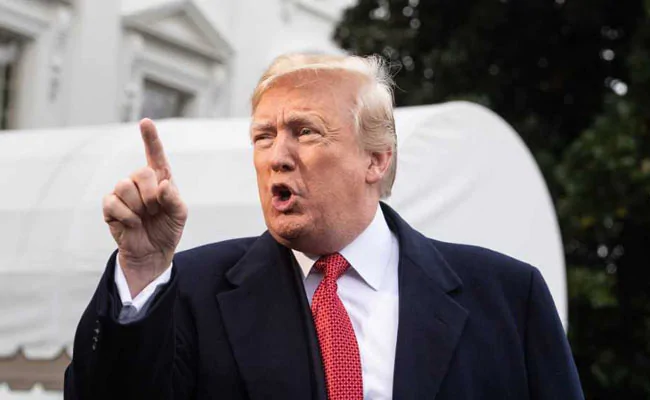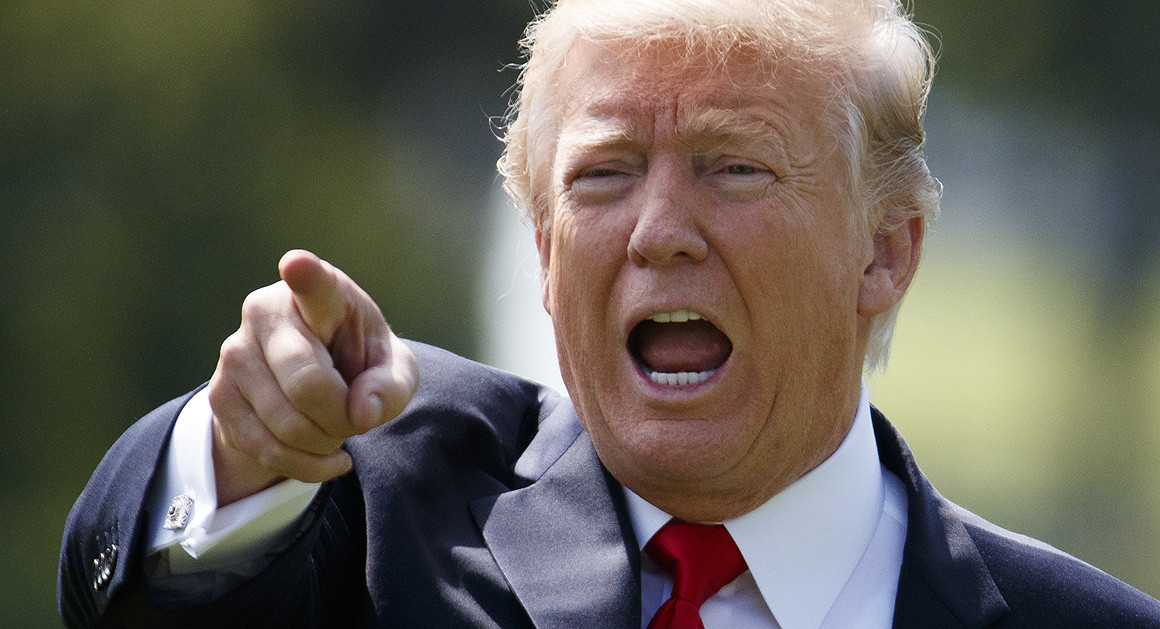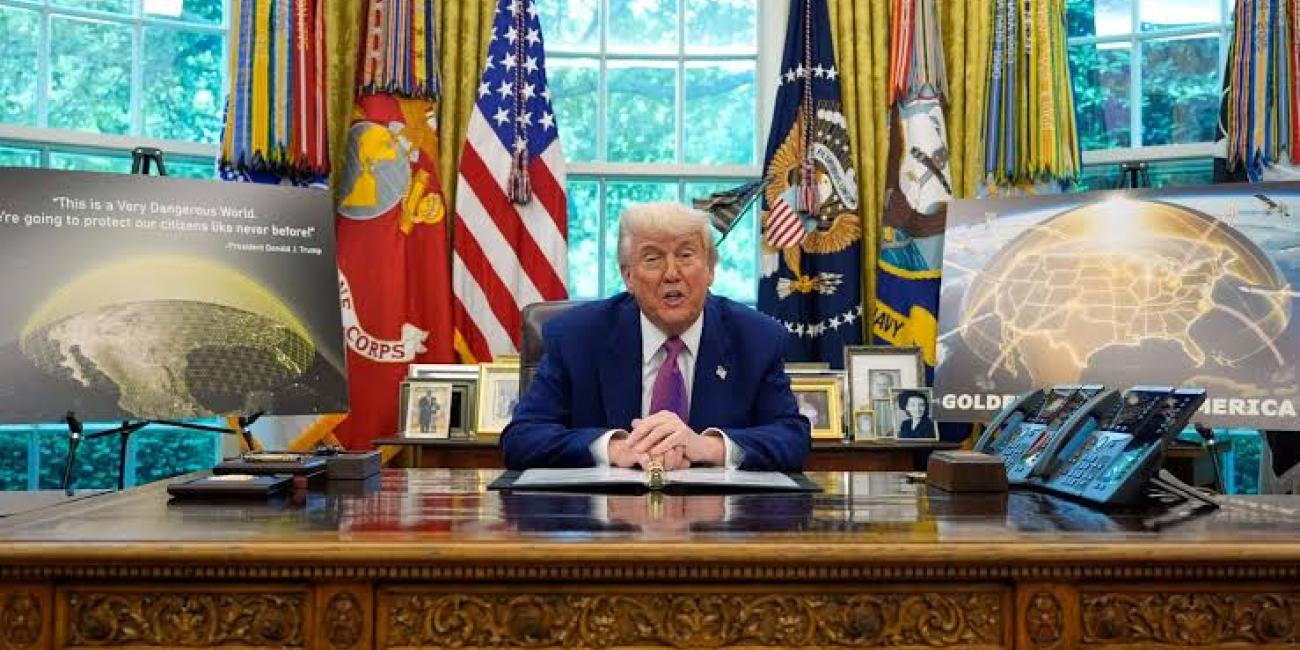
*Secretary of State Marco Rubio memo states: ‘any of the countries may reduce the severity of restrictions if they demonstrate a willingness to cooperate with United States immigration enforcement efforts, to include accepting deported third-country nationals or entering a safe third country’
*’Memo sent to United States diplomats working with the affected nations, outlines a 60-day deadline for those governments to meet newly established benchmarks’
*’The African Union Commission respectfully calls upon the U.S. Administration to consider adopting a more consultative approach and to engage in constructive dialogue with the countries concerned’-AFRICAN Union
*”We cannot allow open migration from any country where we cannot safely and reliably vet and screen those seeking to enter the United States”-TRUMP
*BY JULIET SAMUEL/INTERNATIONAL DIPLOMATIC Editor, NAIJA STANDARD NEWSPAPER Inc USA


The TRUMP ADMINISTRATION has perfected a new plan through the United States Department in rolling out a new travel ban which will bar Nigeria, Ghana, and 34 other countries from lawfully entering the United States, even with a valid visa since this latest restriction is being perfected to be activated soon.
The U.S. State Department memo, which was sent to U.S. diplomats working with the affected nations recently outlines a 60-day deadline for those governments to meet newly established benchmarks.
The Donald Trump administration is considering sweeping travel restrictions that could bar citizens of Nigeria and 35 other countries from entering the United States, according to a memo signed by Secretary of State Marco Rubio.
According to The Washington Post, internal directive gives the countries until 8 a.m. Wednesday to submit an initial action plan addressing the U.S. demands.
“Some countries had ‘no competent or cooperative central government authority to produce reliable identity documents or other civil documents,’ or they suffered from ‘widespread government fraud,’” the memo stated.
The proposed restrictions are part of a broader executive order Trump signed in early June, targeting countries with high instances of terrorism threats, visa overstays, or unreliable identity verification systems. Trump’s remarks during a national address framed the measure as a necessary national security step.
“Very simply, we cannot allow open migration from any country where we cannot safely and reliably vet and screen those seeking to enter the United States,” Trump said when he announced initially that citizens from 12 countries were restricted from entering the United States.
He went further to say, “That is why today I am signing a new executive order placing travel restrictions on countries including Yemen, Somalia, Haiti, Libya, and numerous others.”
Twenty-five African nations are now among the countries that may be subject to new visa bans or other forms of restrictions.
The countries that could face new restrictions in the memo are as follows: Angola; Antigua and Barbuda; Benin; Bhutan; Burkina Faso; Cabo Verde; Cambodia; Cameroon; Democratic Republic of Congo; Djibouti; Dominica; Ethiopia; Egypt; Gabon; Gambia; Ghana; Ivory Coast; Kyrgyzstan; Liberia; Malawi; Mauritania; Niger; Nigeria; Saint Kitts and Nevis; Saint Lucia; Sao Tome and Principe; Senegal; South Sudan; Syria; Tanzania; Tonga; Tuvalu; Uganda; Vanuatu; Zambia; and Zimbabwe.
The administration expressed concerns not only about weak identity systems but also about “the availability of citizenship by monetary investment without a requirement of residency” and alleged “antisemitic and anti-American activity in the United States” by nationals from some of the listed countries.
The memo also notes that any of the countries may reduce the severity of restrictions if they demonstrate a willingness to cooperate with U.S. immigration enforcement efforts. This could include accepting deported third-country nationals or entering a “safe third country” agreement.
Although the exact timeline for implementing the proposed restrictions remains unclear, the State Department has made it known that failure to comply with the benchmarks could lead to immediate visa limitations or entry bans.
The directive follows a similar pattern to Trump’s first-term travel bans, which were heavily criticized for disproportionately targeting Muslim-majority and African countries.
In the new order, additional nations, such as Chad, the Congo, Equatorial Guinea, Eritrea, Sudan, Afghanistan, Myanmar, Iran, and Haiti, are also said to be under scrutiny.
Trump linked the renewed push for immigration restrictions to a recent violent incident in Boulder, Colorado, where 12 people were injured during an attack on a gathering held in support of Israeli hostages. While investigations are ongoing, Trump cited the event as further evidence of the risks posed by inadequate immigration controls.
“In the 21st century, we’ve seen one terror attack after another carried out by foreign visa overstayers from dangerous places all over the world,” he said. “We don’t want them here.”
The African Union has expressed strong opposition to the proposed bans. In a statement, the AU acknowledged the U.S. right to protect its citizens but emphasized that Trump’s decision must be based on facts and balanced diplomacy.
“The Commission remains concerned about the potential negative impact of such measures on people-to-people ties, educational exchange, commercial engagement, and the broader diplomatic relations that have been carefully nurtured over decades.”
The African Union further urged the U.S. to engage more constructively with the concerned nations.
“Africa and the United States share mutual interests in promoting peace, prosperity, and global cooperation,” the AU said. “The African Union Commission respectfully calls upon the U.S. Administration to consider adopting a more consultative approach and to engage in constructive dialogue with the countries concerned.”
DONATE TO HELP BUILD A SPECIAL APPS FOR JOURNALISTS AGAINST LIVER ELEVATION & KIDNEY FAILURE:
CERTAINLY, Good journalism costs a lot of money. Without doubt, only good journalism can ensure the possibility of a good society, an accountable democracy, and a transparent government. We are ready to hold every corrupt government accountable to the citizens. To continually enjoy free access to the best investigative journalism in Nigeria, we are requesting of you to consider making a modest support to this noble endeavor.”
By contributing to NAIJA STANDARD NEWSPAPER, you are helping to sustain a journalism of relevance and ensuring it remains free and available to all without fear or favor.
Your donation is voluntary — please decide how much and how often you want to give. For offline donation, email: letters@nigeriastandardnewspaper.com or call +2348037128048 (Nigeria) or +16825834890 (United States of America)
donation



